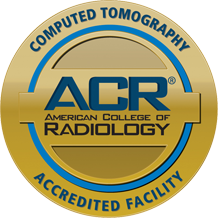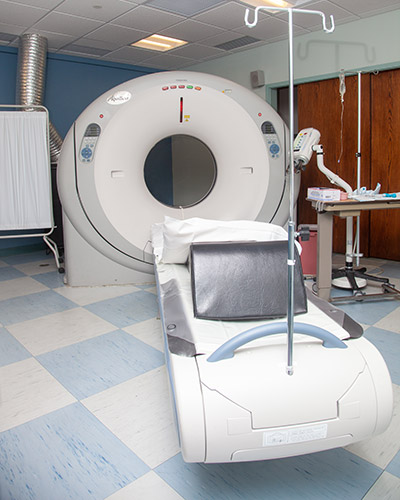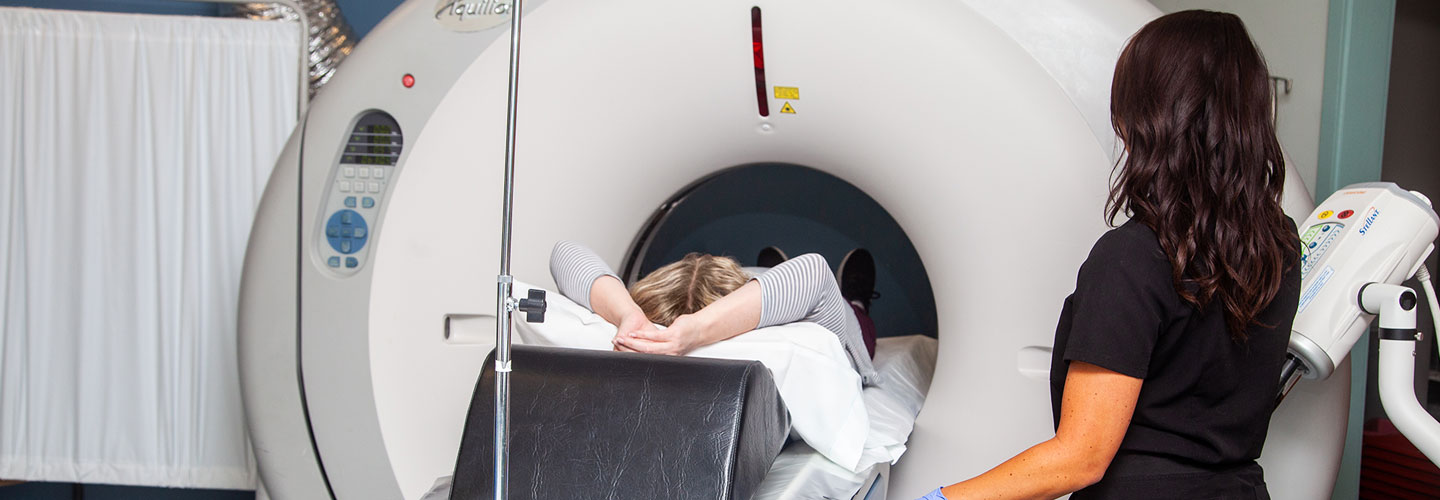 CT imaging usually takes less than 30 minutes and is used to clearly show soft tissue, like the brain, as well as dense tissue, like bone. The information gathered during a CT scan is processed by a computer and interpreted by a radiologist to diagnose, or rule out, disease.
CT imaging usually takes less than 30 minutes and is used to clearly show soft tissue, like the brain, as well as dense tissue, like bone. The information gathered during a CT scan is processed by a computer and interpreted by a radiologist to diagnose, or rule out, disease.
Concord Imaging Center offers one of the most advanced 64-row CT scanners available today. This advanced generation of equipment not only provides exceptional diagnostic accuracy, it also features advanced automatic exposure controls (AEC). Combined with the dose modulation techniques used by our technologists, we are able to effectively reduce radiation exposure to the patient while maintaining precise image quality.
 What to expect
What to expect
The technologist will bring you into the CT scan room where the procedure will be explained to you. The technologist will help you onto the cushioned table. Depending on your study, the technologist may place an intravenous (IV) line through which an X-ray contrast agent may be given.
The technologist will communicate with you during your exam through a microphone. You may be given "breathing" instructions during your exam. As the procedure begins, you will hear a whirring sound as the X-ray tube moves in the machine. The table will move slightly as each picture is taken. To obtain the best possible images, it is important that you lie very still during the exam.
Scan times depend on the type of exam and number of body parts imaged, but typically are less than 30 minutes.
CT Scan of the chest


